Foods Rabbits Should Avoid: A Comprehensive List
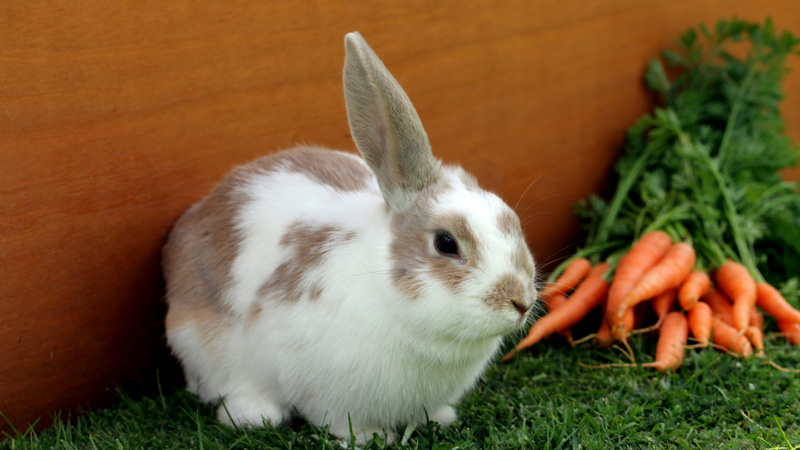
Photo by Sandy Millar on Unsplash
Rabbits are adorable, herbivorous creatures known for their unique dietary needs. While they thrive on a diet primarily consisting of hay, fresh vegetables, and some fruits, there are certain foods that rabbits should avoid at all costs. Whether due to toxicity, difficulty in digestion, or potential health risks, it's crucial for rabbit owners to be aware of these prohibited foods to ensure the well-being of their furry companions. In this guide, we'll explore in detail the foods that rabbits should avoid consuming.
Here's a comprehensive list of foods that rabbits should avoid:
- 1. Avocado
- 2. Chocolate
- 3. Fruit Seeds/Pits
- 4. Raw Onions, Leeks, Garlic
- 5. Meat, Eggs, Dairy
- 6. Broad Beans and Kidney Beans
- 7. Rhubarb
- 8. Iceberg Lettuce
1. Avocados
While avocados are celebrated for their health benefits among humans, they contain a compound called persin, which can be highly toxic to rabbits. Even small amounts of avocado can cause severe health issues in rabbits, including gastrointestinal distress and respiratory problems. It's imperative to keep avocados far away from your rabbit's reach to prevent any accidental ingestion.
2. Chocolate
Chocolate contains theobromine, a substance that is toxic to many animals, including rabbits. Ingesting chocolate can lead to symptoms such as vomiting, diarrhea, rapid breathing, and in severe cases, seizures and death. It's essential to ensure that rabbits do not have access to any chocolate or cocoa-containing products to prevent poisoning.
3. Fruit Seeds/Pits
Seeds and pits from fruits such as apples, cherries, peaches, and apricots contain cyanide compounds that can be harmful to rabbits if ingested. These compounds can cause digestive issues and even lead to cyanide poisoning in rabbits. Always remove seeds and pits from fruits before feeding them to your rabbit to avoid any potential health risks.
4. Raw Onions, Leeks, Garlic
Onions, leeks, and garlic belong to the Allium family of plants and contain compounds that can cause damage to red blood cells in rabbits, leading to anemia and other health problems. Even small amounts of these vegetables can be toxic to rabbits, so it's crucial to avoid feeding them raw onions, leeks, or garlic in any form.
5. Meat, Eggs, Dairy
Rabbits are strict herbivores and should not be fed any meat, eggs, or dairy products. These foods are not suitable for rabbits and can cause digestive upset, as well as other health issues. Stick to a plant-based diet for your rabbit, focusing on hay, fresh vegetables, and occasional fruits as treats.
6. Broad Beans and Kidney Beans
Certain types of beans, such as broad beans and kidney beans, contain compounds that can be harmful to rabbits if ingested in large quantities. These beans may cause digestive issues and discomfort for rabbits, so it's best to avoid feeding them to your furry friend altogether.
7. Rhubarb
Rhubarb contains oxalic acid, which can be toxic to rabbits and cause digestive upset, kidney damage, and other health issues. Both the leaves and stalks of rhubarb should be kept away from rabbits to prevent any accidental ingestion.
8. Iceberg Lettuce
While many types of lettuce are safe for rabbits to consume in moderation, iceberg lettuce should be avoided. Iceberg lettuce has a high water content and low nutritional value, which can cause digestive problems such as diarrhea in rabbits. Opt for darker, leafier varieties of lettuce instead.
Conclusion
Understanding what foods rabbits should avoid is essential for ensuring their health and well-being. By steering clear of toxic or harmful foods such as avocados, chocolate, fruit seeds/pits, raw onions, leeks, garlic, meat, eggs, dairy, broad beans, kidney beans, rhubarb, and iceberg lettuce, you can help your rabbit live a long, happy, and healthy life. Always provide your rabbit with a balanced diet consisting of hay, fresh vegetables, and occasional fruits as treats, and consult with a veterinarian if you have any concerns about your rabbit's diet or health. With proper care and nutrition, your rabbit can thrive as a cherished member of your family for years to come.
You May Also Like
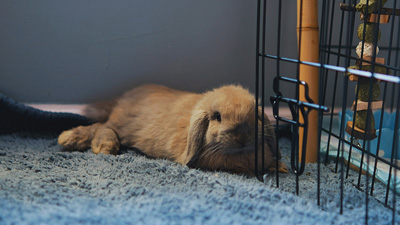 Rabbit BreedsDo Rabbits Smell If Kept Indoors?
Rabbit BreedsDo Rabbits Smell If Kept Indoors?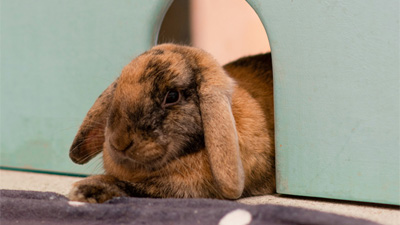 Rabbit BreedsWhat Is The Friendliest Breed of Rabbit?
Rabbit BreedsWhat Is The Friendliest Breed of Rabbit?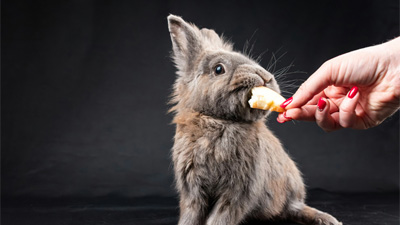 Rabbit BreedsWhich Type of Rabbit is Best for a Pet?
Rabbit BreedsWhich Type of Rabbit is Best for a Pet? Rabbit BreedsWhat Breed Of Rabbit Sheds The Least?
Rabbit BreedsWhat Breed Of Rabbit Sheds The Least?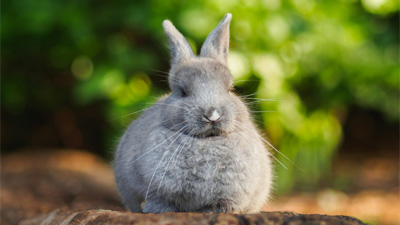 Rabbit Breeds6 Low-Maintenance Rabbit Breeds For Busy Lifestyles
Rabbit Breeds6 Low-Maintenance Rabbit Breeds For Busy Lifestyles Rabbit BreedsWhich Rabbits Are Easiest To House Train? Netherland Dwarf
Rabbit BreedsWhich Rabbits Are Easiest To House Train? Netherland Dwarf